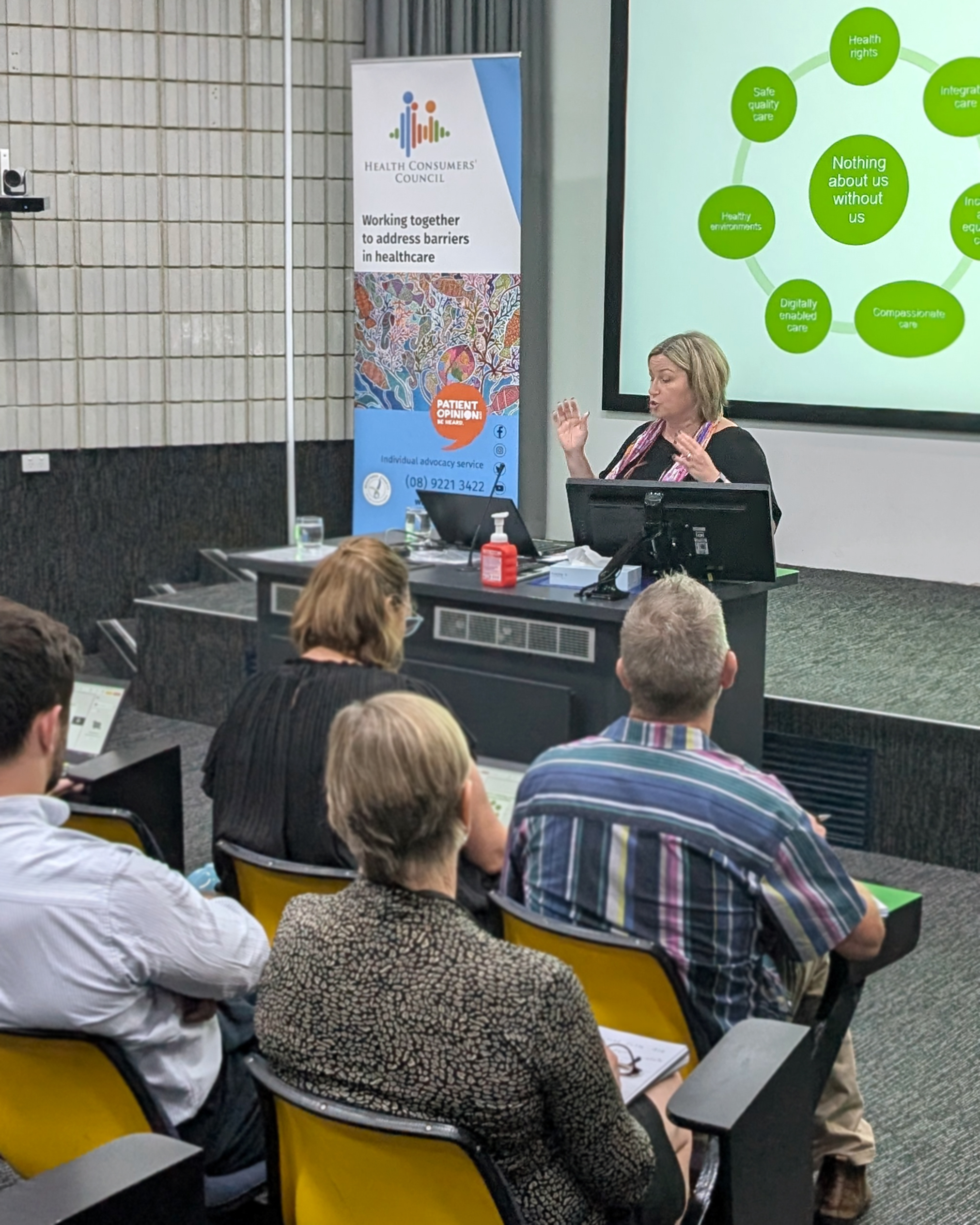
At Health Consumers’ Council (HCC), we believe that meaningful change in our health system requires active consumer involvement at every level of decision-making. Following the recent ministerial appointments, we’ve reached out to the new health leadership team to highlight key priorities identified by health consumers across Western Australia.
Our key advocacy priorities
Through our engagement with the WA health consumer community and our consumer lens on the health reform landscape, we’ve highlighted several critical issues:
Consumer involvement in decision-making
Across all our ministerial communications, we’ve emphasised the need to strengthen requirements for WA Health services to meaningfully involve consumers, families, and people with lived experience at every level of decision-making. We’ve highlighted the successful Consumer Lead roles within the Women’s and Babies Hospital project as a minimum standard for future projects of similar scale.
Healthcare affordability and equity
We’ve raised serious concerns about healthcare affordability, with evidence showing some community members are missing essential healthcare due to cost concerns, with some people resorting to taking out payday loans to access necessary care.
Aboriginal healthcare equity
We’ve drawn attention to Australia’s widest gap in hospital procedure rates between Aboriginal and non-Aboriginal patients occurring right here in WA. We’re advocating for increased access to advocacy services for Aboriginal patients to strengthen their voices in healthcare settings.
Reducing avoidable harm
We’ve proposed practical steps to improve healthcare safety:
- Mandating access to independent advocates for consumers and families involved in Severity Assessment Code Category 1 Clinical Incident Investigations
- Embedding Care Opinion across the health system as a feedback and quality improvement mechanism
Preventative health investment
We’ve emphasised the potential of community-led health initiatives, highlighting the Compassionate Communities model in WA’s South West that achieved a remarkable 63% reduction in hospital admissions. We’re advocating for accelerated rollout of similar community-led approaches.
Medical Research and Citizen Science
We highlighted opportunities to strengthen consumer involvement in shaping research priorities. We’ve proposed investment in citizen science initiatives for health and health promotion, building on WA’s reputation as a leader in consumer involvement in research.
Aged care priorities
We’ve highlighted issues around:
- Ensuring sufficient aged care capacity so people receive the right care in the right place
- Taking action to eliminate stigma and discrimination in aged care services
- Protecting the sexual safety and dignity of people with dementia
Prison Health Services
With Minister Papalia (Emergency Services, Corrective Services), we’ve reiterated the Sustainable Health Review Panel’s support for transferring custodial health services from the Department of Justice to the WA Health system to facilitate more integrated physical and mental healthcare.
Looking forward
These letters mark the beginning of what we anticipate will be a constructive dialogue with the new ministerial team. We’ve requested meetings with each minister to discuss these priorities in more detail and explore collaborative approaches to addressing them.
As is clear from the range of issues we’ve raised, the opportunities to improve health outcomes and experiences for everyone in WA are many and far-reaching. We welcome the expansion of the Ministerial team as recognition of the importance and scale of this work.
As ever, we welcome your thoughts and experiences on these issues. Please continue share your healthcare stories with us, as they strengthen our advocacy work and help identify emerging issues affecting health consumers across WA.
Clare Mullen, Executive Director





